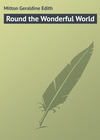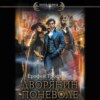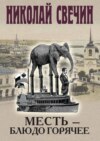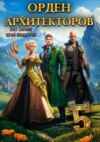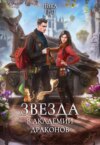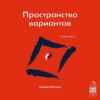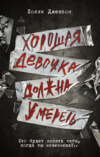Читать книгу: «Round the Wonderful World», страница 23
CHAPTER XXXI
ON A CATTLE RANCH
Do you remember your first sight of the sea? I've not forgotten mine, though it must have been many years before yours. I suppose I wasn't more than four, and kindly patronising elder brothers and sisters had tried to describe it to me beforehand, but the most I pictured was a very, very big pond, with water as flat and uninteresting as that of most ponds. No one can have any real notion of the sea before seeing it; and it is the same with the prairie. I have often imagined it, but now that we are actually on it, driving over it, I find that all my mind-pictures are lifeless compared with the reality. It gives one a feeling of freedom, as if one had been living always in rooms and suddenly got out. It is not flat like a table, but full of gentle curves and sweeps, as if it were always just going to reveal something unknown, and yet it reaches on for ever on all sides. It makes us feel quite insignificant as our conveyance crawls along the centre of a gigantic circle which appears to move with us. But the thing which is most surprising is the beauty of it. The grass is growing freely and is very fresh, and mingled with it, like poppies and cornflowers in a wheatfield, are innumerable flowers, red and blue and yellow, shining like jewels in the brilliant sunlight – some are like sunflowers, and others, growing singly, are tall red lilies. There are clumps of trees, too, here and there, little round islands of them, bluffs, they are called. We have left the mountains now and descended into the great plains once only inhabited by wild tribes of the Redskins and mighty herds of buffalo, but now for the most part taken up by white men for grazing-ground.
When our engine ran into Calgary station, with a great clanging of the big bell, we found a sunburnt lean young man of twenty or so, in the shady hat, blue shirt, breeches, and leggings we have become accustomed to now. He greeted us very shortly: "For Mr. Humphrey's ranch?" and when we said "Yes," led the way outside to where an odd kind of waggonette, drawn by two horses, was waiting. We gather it is called a "democrat," for we heard the stationmaster say, "Put 'em in the democrat" as sundry square wooden boxes were gathered up from a storehouse. Our luggage was a mere trifle compared with the miscellaneous mass of sacks and boxes and bundles that were piled in behind. We were six hours late, as we were due at two this morning and it is now eight. I remark on it to our silent young driver when he gathers up the reins. He laughs shortly. "You never can tell, sometimes it's as much as a day – "
The trail out on to the boundless prairie, after getting clear of the town, is merely marked by two deep ruts. When we meet another "rig," as conveyances of any sort are called here, the driver usually goes off on to the grass to make way for us, as we have a heavy load, a courtesy our young driver acknowledges by raising his whip.
It is very, very hot, and as we jog along in silence it is difficult not to fall asleep. It seems a long, long time before the driver points with his whip to a distant herd of cattle.
"They belong to the Lone Pine Ranch," he volunteers. That's the ranch we are going to stay at. Then a group of log buildings, with a few trees near, rises out of the plain, and we draw nearer and nearer steadily and realise this is our destination.
The principal house is built entirely of logs and has a sort of verandah around. Mr. Humphrey himself is waiting outside, and at a shout from him a fair-haired, rosy-cheeked woman in a pretty pink cotton dress and sunbonnet joins him, followed by a tiny toddling child.
Their welcome is as warm as all the others we have received in Canada. To our surprise the young driver turns out to be the Humphreys' son!
His father and mother laugh heartily as he disappears round the corner of the house to unyoke the horses.
"Edmund is the best man at holding his tongue I ever came across," says Mr. Humphrey; "seems to have been born that way; he doesn't get it from either of us!"
Mrs. Humphrey is doing all the work of the house herself, for her husband, five children, and three hired men, with the help of an Indian woman for the rough scrubbing.
"You can't get servants here," she says; "and if you brought them out from England they'd get married in the first week."
Edmund reappears for dinner, followed by three other young men dressed precisely alike. They sit down in a lump at one end of the wooden table and solidly consume immense helpings of boiled beef and dumpling, which Mrs. Humphrey carries in, disdaining any help. When we have finished she smilingly produces half a dozen jam tartlets from a cupboard.
"I made them for you," she says, looking at you. "I'm proud of my pastry, but I had to hide them, for Edmund and his father have an awful sweet tooth, and if I'd put them out there wouldn't have been one left."
There are gurgles and nudges from the lower end of the table, and I see you grow scarlet as the plate of tartlets is solemnly put in front of you. I'll help you out. I have a "sweet tooth" too, and the toddler will do his best, as he has one bestowed on him by his mother.
There is a crash in the little scullery opening off the room we are in, and as the mistress of the house jumps up with an exclamation the round moon-face of an Indian woman appears for a moment in the doorway.
It seems she has upset the coffee which she was going to bring in. Some of it is saved from the wreck, though the "boys" have to go without. As they file past, back to their work, Edmund follows last and snatches a tartlet while his mother's back is turned, winking at you as he does it. Mr. Humphrey immediately bolts another rather guiltily, so one, looking very small, is left alone in the plate.
I'm afraid Mrs. Humphrey thinks we have gobbled them up!
This room has nothing to hide the bare wooden walls except a few pictures from illustrated papers and a photo or two pinned up. The great stove is a very ugly thing, and its pipe goes out through the roof. Our room, which opens off on the same floor, is the merest slip of a place, with hardly room for the couple of camp-beds side by side. From the photos I guess it is Edmund's room, and that he has gone off to sleep with the men in their quarters near the barn meantime. We have the luxury of an enamel basin on a tripod, but, as Mr. Humphrey explains, it's much easier to get a wash down with a bucket outside.
While we sit on the verandah he explains that he has three other children now at school; they will be back presently, and almost as he speaks a waggonette with a roof over it appears in the distance, and soon three rosy-faced girls, aged about seven, nine, and eleven, tumble out, waving good-byes to a few friends who go on in the conveyance, before they run in to get their dinner.
"The authorities send the children from the outlying farms to school, and fetch them again free now," says Mr. Humphrey. "It's the latest thing, and a good thing too, or they would have to go without education when they live as far away as this."
"The marvel to me is how Mrs. Humphrey manages to do it all," I say.
"You haven't heard the half!" he ejaculates. "She does all the washing, looks after the pigs and poultry you see around here, milks the cows, and finds time to go to every dance within twenty miles. She's a great deal keener on dancing than Edmund is, though she makes him go with her. That's not all, either; she'll show you herself her prizes – albums and things she has won – that very rocking-chair you are sitting in is one of them; those are for winning ladies' races, there isn't one that can beat her. The finest day she ever did was two years ago, when Harry, that's the little one, was only ten months old. She got up and did the family washing at five, milked the cows, drove into Edmonton with the kid – she hadn't anyone to leave it with you see; she did her shopping, turned up at Poplar Lake Fair in the afternoon, and got someone to hold Harry while she won the ladies' race there, giving a handicap to the field! She's the finest dancer in the country round and has won things for that too."
Yet she looks not much more than a girl now!
Next morning we are up early, as Mr. Humphrey has asked us if we would like to go with him to see some cattle "shipped" by rail at Red Deer, thirty miles away on a branch of the main line between Calgary and Edmonton.
The "boys" have been off with the beasts long before.
We reach Red Deer by half-past nine, and see from afar the great herd of cattle, standing lumped together, while the young men, including our silent friend, Edmund, sit motionless as statues on ponies surrounding them.
As we get nearer we see kraals, or enclosures, close to the railway line, and on a siding some empty cattle-trucks ready. We are left to sit in the buggy – another name for a conveyance – while Mr. Humphrey gives orders and the boys begin to round the cattle up. It is a sight to see them, for they seem simply to flow round the herd in a continuous stream, they gallop so fast and handle their long-lashed whips so cleverly. The outer gate of one of the kraals has been unbarred, and the beasts are run through the opening into the kraal without the slightest hitch.
Mr. Humphrey walks across and seats himself on the high railing of the kraal near the trucks. Then a bar is taken out on this side, the first opening having been closed, and the cowboys send the cattle through this on to the slanting gangway leading to the first truck. The truck holds just nineteen beasts, and when nineteen are out of the kraal Mr. Humphrey drops the bar behind the last.
It is a difficult job to get the nineteen into the truck, for they are frightened and suspicious and there is only just room enough for them all to pack in. But at last it is done, the door is fastened, and the truck moved on so that the next one comes abreast of the gangway. When all the trucks but one have been loaded, we count and discover that there are twenty-two cattle left. Mr. Humphrey shouts out that a certain white steer must go in any case, and he indicates the three beasts which can be left.
But, of course, when the whole lot come through in a bunch the white steer remains till the last! They are sent back again and brought forward once more; the three unwanted ones press forward, and the white steer remains by himself in the kraal, refusing to come out at all. It is exactly as if the beasts had understood what had been said and were determined to give as much trouble as possible.
The boys do their work admirably. This time they "cut out" the three unwanted ones and send them careering off across the prairie, to make their own way homeward. The remaining eighteen are fitted into the truck, and then they turn to tackle the steer, who stands in the middle of the kraal waiting.
Two or three of them, including Edmund, sidle up to him on their ponies and try to edge him toward the gangway. But he only paws the ground and throws his head up in the air. Just as Mr. Humphrey shouts out a warning, everything happens all together in a second.
The steer makes a mad rush. Edmund, who is nearest the gate, is through it like a flash. The second man gallops for the other gate leading out of the kraal on to the prairie, but the third, who is in the middle of the green space, hesitates for an instant and is lost. The great beast is at him, the pony wheels, slips, and falls, and his rider is shot off. Another minute and the steer is on to him, pommelling at him with its great horns. Edmund, however, has snatched up a lasso and is back into the kraal like a streak of light; without ever checking his gallop he flings the lasso round the enraged beast's head, and drags him away in a great semicircle through the now open gate on to the prairie. We see him with a sharp turn jerk the animal off its feet, and then a revolver shot rings out; there is a convulsive kick or two and the great steer lies dead.
Meantime the others have run to lift up the unconscious man in the kraal. Luckily he is not much the worse, for he has only a fractured collar-bone and a broken arm. He was stunned by his hard fall, but soon comes round. Nobody seems to think much of this, but they all congratulate him on having escaped with nothing worse. These accidents are daily risks in a cowboy's life.
It is late before we get back, and we have no time to wander round the homestead that day. Next morning you are up and out early to investigate something for yourself. I know quite well what it is, for you talked "gopher" in your sleep.
In coming across the prairie we saw here and there colonies of odd little beasts that looked a cross between a squirrel and a rat. They jumped up and sat on the tops of their holes to see us pass, and then disappeared like a Jack-in-the-box when we got near. When I go out a bit later I find you in fits of laughter at the inquisitive little creatures. They can't resist peeping, and when they have popped into their holes, back come the little heads and bright eyes to watch what you are doing. I am pretty tired, as I was kept awake most of the night by a bird in a tree near the window which kept saying, "Whip-poor-will" over and over again at intervals. I understand that's its name, and it is hated by the ranchers. No, it is not the bright little black and white bird like a small magpie which pecks around, that is a Whisky-Jack.
I spend a gloriously lazy morning watching you crawling around behind the holes and trying to grab the gophers! Needless to say you never get one!
At dinner-time Mr. Humphrey is much amused at your game. "They drive dogs just frantic," he says, "especially young ones that don't know them. Rabbits aren't in it!"
After dinner he suggests driving us round the ranch, and invites you to come and help him to yoke up. A minute or two later you both reappear without the horses.
"A brute of a skunk," says Mr. Humphrey tersely; "we'll have to wait a while."
It seems that one of these awful beasts has got into the shed among the harness, and till he chooses to move nothing can be done. Naturally I want to see him.
"You'll have to be as quiet as a mouse," you say, guiding me round on tiptoe. "Mr. Humphrey says that he has a store of acrid fluid that stinks like rotten eggs, and if he's disturbed he lets you know it. It's weeks and months before any place is free from the smell."
So we peep cautiously and see an animal about the size of a large cat, with bright black and white markings, lying harmlessly on a pile of harness. It has no sting, no formidable claws or beak, and yet it is able to keep any number of men from disturbing it while it chooses to lie on their possessions. No god could receive more respect from his believers. It is after tea-time when you, creeping to report, tell us the good news that at last Mr. Skunk has gone away!
A day or two later Mr. Humphrey says he will take us to see an Indian reserve, as he thinks we ought not to leave the country without seeing one.
You know the Indians are now looked after by the Government. There are certain pieces of land kept for them, and no one else may live on them. As the white men have spread over the land, and used it for corn and cattle, the Indians have been driven farther back, and find more difficulty in getting a living, so now Government agents are appointed to manage these reserves; they know all the Indians in their charge, and deal out to them certain amounts of stores and look after them.
The settlement we are to visit is at Battle River, about forty miles south of Edmonton. The day chosen is the one when the Indians come in from the country to get their rations. They are a shabby-looking crowd as they gather up near the lumber houses where the agent lives and where the stores are kept.
These are men and women of the tribe of the Crees, a very quiet, peaceful tribe, not troublesome, like the Blood Indians. If you imagined we should see them with feathers sticking out round their heads and fringes of scalps on their leggings you will be terribly disappointed. All these men are in European clothes, with round black felt hats, soiled coats, and blue overalls for trousers. The only thing Indian about them are their moccasins, the soft leather foot-covering they wear instead of boots. They have broad faces, lanky hair, dark reddish skins, and rather a sullen expression mostly, and look dirty and untidy, like old tramps. The squaws, who wear old shawls and skirts, sit solemnly smoking all the time; they nearly all carry on their backs papooses (babies) tied up tightly like little mummies. There are endless numbers of lean cur dogs, yapping and snarling at each other as they prowl for scraps.
The Indians go in single file past the counter in the store and get rice and tea and flour dealt out to them, and then each one receives a portion of meat. The agent speaks to each of them by name, calling them Jim, Dick, or Charlie. Such grand names as "Sitting-Bull" or "Swift-as-the-Moose" are mostly discarded now in favour of something more European, which is considered more fashionable. The Indians hardly speak and never smile, the expression on their faces does not alter in the slightest when the agent chaffs them. When they leave the store they carry their provisions over to where a lot of rough-looking ponies are grazing. Do you see what a simple arrangement these ponies drag? It is made merely of a couple of long sticks, which run on each side of the pony like shafts; at the back the ends are crossed and tied together and trail on the ground. The goods are fixed on to these sticks, and then, seating themselves on the top of the bundles, the Indians set off homeward, followed by their patient squaws, who trail along after them on foot, carrying the papooses.
CHAPTER XXXII
THE GREAT LAKES
If we found the prairie astonishing even when uncultivated, what of this? Corn, ripened in the sun, and spreading over mile after mile on both sides of the railway line! There are no neat little fences to cut it up into fields, and it does not grow unevenly, but all at one height, so the effect is a flat and boundless plain, yellow as the desert sand. Everyone has heard of the grain fields of Canada, the great stretch of land, about a thousand miles in width, from whence corn is shipped to the remotest ends of the earth.
We lingered on so long with the Humphreys that already the harvest is ready for cutting. On leaving Calgary we passed through some towns with astonishing names. The first we noticed was Medicine Hat, which Mr. Kipling has written about as "The Town that was Born Lucky," because gas was discovered in great quantities below the surface, and when holes are bored for it huge jets spring forth and can be used in countless ways; even the engines of the C.P.R. make use of it.
Then we came across Moose Jaw, Swift Current, Indian Head, and Portage La Prairie. I forget at which of these it was we saw Indians in all the gaudy finery of their ancestors, with feathers sticking up on their heads, buckskin shirts covered all over with beads and decorated with tassels, in which coloured grasses were twisted. As the Indian may not take scalps now he has to find other trimmings! These men dress up like this to attract tourists, because they want to sell buffalo horns, bead-work moccasins and bags, and many other things.
Then we got to Regina, the headquarters of the Royal North-West Mounted Police, and were lucky enough to catch sight of one or two of the force in their neat work-manlike khaki, with their round broad-brimmed hats which the Boy Scouts have imitated. These men are hard as nails and absolutely fearless; the story of the adventures of the force would make a thrilling book.
At every station we notice tall odd-looking buildings which form no part of an English station. These are grain-elevators. When the farmer has threshed his corn he can bring it here and receive a receipt for it, and have it stored; then it is run up to the top of one of these places by endless ropes, and thence can be easily poured down out of a funnel-like shaft into the waiting trucks for shipment.
At last there is a farm where the corn is being cut! I have been watching to see one. That row of machines following each other, in what seems from here to be a line, are cutting and binding the corn and turning it out in neat sheaves. The Canadian farmer is often very much ahead of us in the way of machinery. He has to be, for sometimes he has furrows four miles long and a farm the size of an English county. There is, for instance, a steam-plough which takes twelve fourteen-inch furrows at once! What would an English yokel, meandering along at the tail of his two slow horses, say to that? His little job would be done before it was time for breakfast! Hullo! there is another field, all in stooks already – look across the boundless plain to the horizon. There is nothing to be seen but stooks and that thin telephone wire running like a line in the sky in the far distance. When you look at any map of Canada you can't help noticing how straight the boundaries of the provinces are, just as if ruled with a ruler; as a matter of fact they run usually on lines of longitude or latitude, and are thus very different from our county boundaries, which have grown up anyhow. This province we are now in, Manitoba, has recently been increased by an immense area of land in the north, so that it now has a seashore on Hudson Bay, but before that it was nearly square. The farms are measured out in the same exact way too; men have land given to them in sections a mile square, and a man can take more than one section, or he can have a part of one, but every bit of land granted is marked out evenly like the squares on a chess-board.
The days of our journey east seem to be just a succession of endless cornfields and grain-elevators, with glimpses of busy towns and small stations. And in the evening we see a yellow glow of sunset lighting up the uncut fields in a splendour of light that is worth coming far to see. There is a very striking difference about the twilight here and in the East. You remember there how night seemed to shut down close upon sunset, here the light remains on in the sky for many hours, even at nine o'clock we can see the hands of our watches.
Every now and then we discover our watches are an hour slow, and we have to jump the pointers on. This is because Canada and the States are divided up into strips by north and south lines, which mark off the time to be kept in each. As I explained long ago – how very long ago it seems! – America is too vast a continent to keep one set time from shore to shore, as we do in our little country, so it was found convenient to make definite lines, each one hour apart, all the way across.
Then we arrive at Winnipeg, the capital of Manitoba and the largest corn-market in the world. The town is almost exactly half-way across Canada. But we are not going to stop here, for towns do not interest us so much as nature, though if we could have had a peep into the wide main street, with its towering buildings, remembering it was a prairie trail thirty years ago, it would have been worth while.
The rest of that day we run through much prettier scenery than the cornland, which has become very monotonous, and at night-time arrive at a place called Port Arthur, where we are going to leave the train and explore the Great Lakes. Well may they be called "Great"! In Lake Superior, the largest of the five, you could put the whole of your native land, Scotland, and have nearly two thousand square miles left over! This is the largest fresh-water lake in the world. There are five lakes here lying together, and the three largest – Superior, Michigan, and Huron – spring from a common centre and stretch out just like the fingers of a horse-chestnut leaf, but you will find out all this to-morrow.
It is a glorious afternoon the next day when we first catch sight of the steamer waiting to take us across Lake Superior. She is more like an ocean liner than anything else. She is called the Hamonic, and is indeed as large as many of the ships of well-known lines running out to the East from England, for she is five thousand tons, with accommodation for four hundred first-class passengers. On the upper deck is an observation room with windows along the whole length of each side. For all we can see, when once we are out of sight of the shore, we might have left Canada for ever and be taking our final plunge across the Atlantic homeward. And it is the same thing all the next day. We see no land and might as well be on the broad ocean, until, after luncheon, we come to the great lock, or canal, which joins the two lakes of Superior and Huron. It is nine hundred feet long, and had to be made because the levels of the two lakes are different, and no steamer could have come through the rapids which the Indians used to love to shoot in their canoes. When we are through the lock we stop at a large and flourishing place called Sault Ste Marie, and then get into far the prettiest part of the route among the islands, where we see fine trees already turning crimson and gold. Right across Lake Huron we go, passing the entrance to Lake Michigan, and reach Sarnia at one o'clock the next day. Sarnia stands on a narrow strait, and just opposite is part of the territory of the United States of America.
If Canadians are sons and daughters of Great Britain, the Americans are first cousins, for there is no other country in the world, outside the British Empire, of nearer kin to us than the mighty nation which leads in the van of progress in all manufactures and enterprise.

